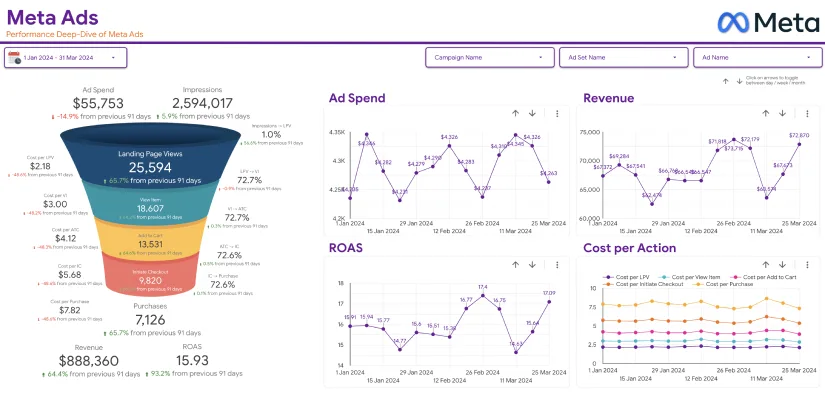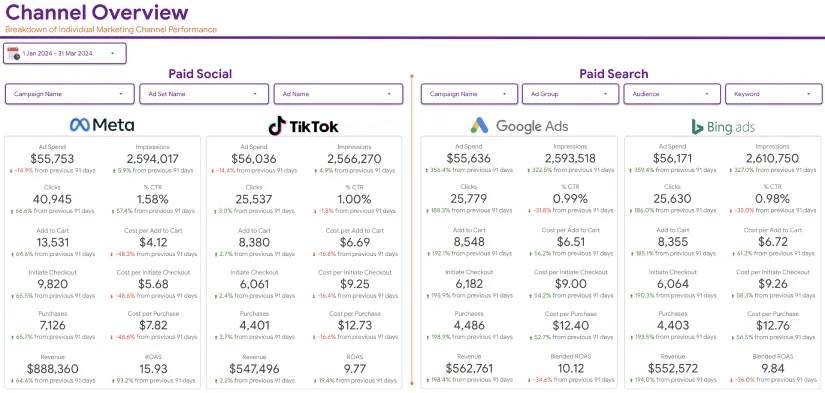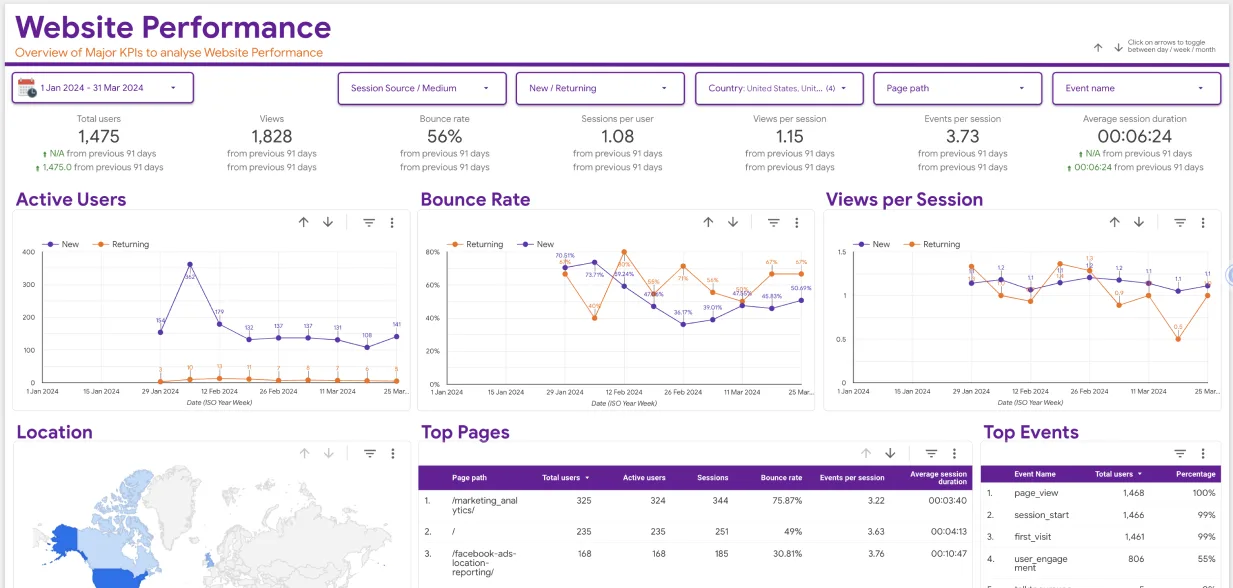Many people need help choosing an automated SEO reporting tool. Finding the best SEO reporting tools comes with several difficulties. If you find yourself in this situation, it is not an isolated issue. Like you, many marketers need help with imprecise interfaces and misleading data.
The appropriate SEO reporting tool can make all the difference when monitoring your progress and making wise decisions. It can be challenging to decide which of the many possibilities is best for your needs. Ideal Frequency for SEO Analytics Reviews will help you effortlessly monitor high-leverage performance indicators for your clients while saving you countless hours of labor.
In this article, we’ll discuss how to choose an automated SEO reporting tool, its benefits, and factors to consider. Without further ado, let’s get started.
What is Automated SEO Reporting?
An automated SEO reporting tool is a report that shows all important key performance indicators. Since they don’t require the time-consuming and specialized knowledge required for manual reporting, automated SEO reports are appealing because they enable teams to obtain insights on their SEO and web performance immediately.
Consider it your go-to resource for all things SEO. It gives you the information you ought to comprehend how well search engines rank your website. For organizations and marketers, SEO reporting tools are more than simply tools—they’re revolutionary. They allow you to make well-informed, data-driven decisions by highlighting techniques that work, areas for improvement, and ways to improve your website’s performance.
Types of SEO Reporting Tool
Rank Tracking Tools
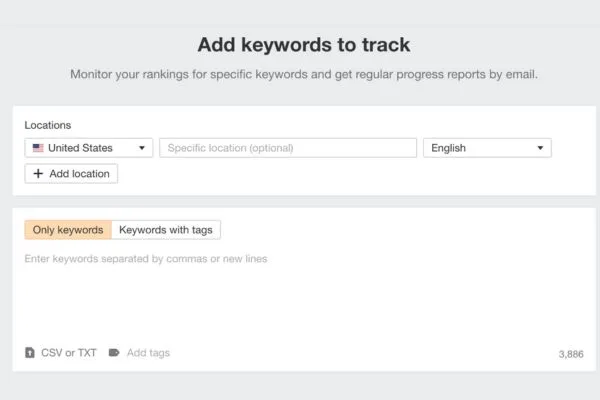
Critical variables must be considered when selecting rank-tracking tools for SEO reports. These include the capacity to monitor keyword ranks on various search engines, track rankings on mobile and desktop devices, and obtain competitive intelligence.
Different rank-tracking tools offer diverse degrees of accuracy in monitoring keyword positions and generating thorough results. Custom reporting, data visualization, and integration options are crucial since they enable tailored reporting to satisfy certain SEO requirements.
Keyword Analysis Tool
Tools for keyword analysis are quite beneficial. They provide excellent insights into SEO effectiveness. These tools demonstrate popularity, competition, and relevancy and aid in comprehensive keyword research. The best SEO keywords drive the greatest traffic and conversions, which marketers can discover.
Backlink Analysis Tool
Backlink analysis tools offer insightful information about a website’s backlink profile. They display the quantity, quality, and referring domains of backlinks. In addition, these tools include data on anchor text, diverse kinds of links, and the general condition of a website’s link profile. It is typical to integrate with additional SEO reporting tools.
Content Optimization Tools
On-page SEO, content performance tracking, and keyword research are some of the main aspects of content optimization tools for SEO reporting. Through customization options, customers can monitor backlinks for customized SEO reports, target specific keywords, and assess competitors’ content tactics.
Competitor Analysis Tools
SEO reporting tools that perform competitor analysis offer insights into the backlink profiles, websites, and rivals’ keywords. Features like competition benchmarking, backlink analysis, and keyword gap analysis are available. In digital marketing, these techniques are useful for identifying both opportunities and threats. This data allows businesses to obtain a competitive edge and make wise decisions to raise their online exposure and search engine rankings.
Automated SEO Reporting Benefits
It is important to explore some benefits of SEO reporting tools. You can ensure your efforts align with your marketing objectives by routinely tracking SEO indicators and evaluating the outcomes. However, monitoring all these performance parameters without automation takes a lot of labor.
Here’s where automated SEO reporting comes in. You can quickly create automated SEO reports for your clients with the most trustworthy insights, achieving the best outcomes without spending hours on report creation.
This procedure is simplified with the right SEO reporting tool, which also helps you plan future strategies and gain insight into your SEO performance. For instance, tools like Google Analytics provide powerful capabilities that monitor user activity and website performance, which is important data for SEO success.
How to Choose an Automated SEO Reporting Tool?
Many options are available on the market right now for automated SEO reporting tools and solutions, so how do you sort through them all to get the ideal one for your needs? This is a short, easy-to-follow process that will assist you in selecting the best SEO reporting tool for your requirements and enhancing your SEO plan.
Identify Your Needs
Determine what you require from an SEO reporting tool before examining your possibilities. Do you require capabilities for site audits, backlink research, or in-depth keyword tracking? List the primary metrics and features that are necessary for your reporting first. By your objectives, order these. For instance, search for tools excellent at tracking and analyzing keywords if your main goal is to raise keyword rankings.
Explore Available Reporting Tools
After you’ve determined exactly what you need, research the various SEO reporting tools. There are numerous choices available, each with advantages and disadvantages. When gathering information, consult trustworthy sources such as forums, industry blogs, and review websites.
Evaluate the reporting tool Features
After some study, it’s time to examine the features of the various tools. Customizable reports, automated data collection, and connection with other SEO tools are essential features of a quality SEO reporting tool. Please list the characteristics you require from each tool and compare them.
Check Integration Capabilities
Selecting an SEO reporting tool requires careful consideration of integration possibilities. Make sure the technology you choose works well with other programs you use, such as your CRM system, Google Analytics, and Google Search Console. A seamless connection can streamline and save time in your reporting process.
Look at the Usability
An easy-to-use interface impacts your overall experience using the SEO reporting tool. Test samples or demos to gauge usefulness. Note how simple and intuitive it is to use the tool’s capabilities. Regardless of technical proficiency, all team members should find the product straightforward.
Read Testimonials
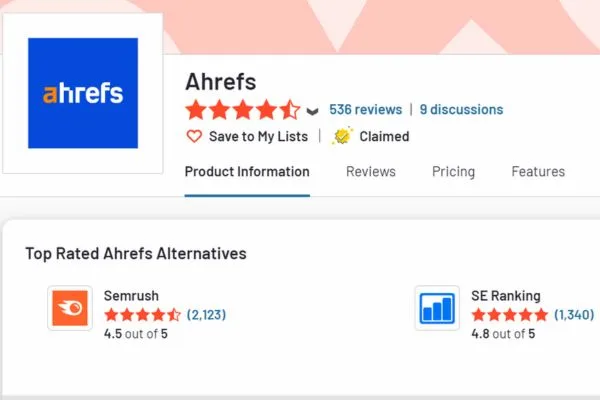
Spend some time reading user reviews and testimonials before making your final decision. These observations can be extremely beneficial as they provide a practical viewpoint on the tool’s effectiveness and dependability.
Test the Reporting Tool
Many SEO reporting tools offer free trials or demonstrations. Use them to discover what the tool is capable of. Thanks to this practical experience, you’ll be able to tell whether the product is user-friendly and fits your needs. During the trial period, test the aspects that most interest you, such as report production, data quality, and tool integration. Ensuring your selected tool fits your company well requires this key step.
Evaluate Pricing
One of the most important considerations while making decisions is price. Examine various pricing schemes to see which one best suit your spending limit. Consider the tool’s value in relation to its price.
Select a plan that fits your needs because some tools have price tiers based on capabilities or usage levels. Remember to factor in extra expenses like setup or continuous assistance. By closely examining prices, you can ensure you receive the most return on your investment.
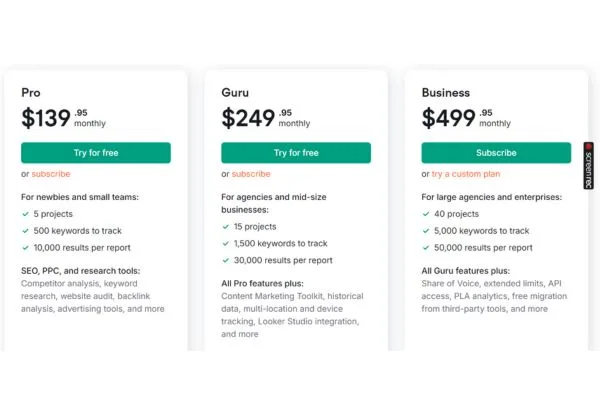
Decide what you want
After weighing each of these considerations, you must decide. Write a summary of all you’ve learned, then contrast the tools according to your standards. Make sure the product satisfies your requirements, falls within your budget, and works seamlessly with your systems by using a checklist. Consider any other elements, such as future scalability and customer support.
Implement and Train
After selecting a tool, make sure it is used correctly. Observe the setup and integration instructions provided by the vendor. This step aims to ensure the tool integrates easily with your current systems. Give your team extensive training so that everyone can utilize the product efficiently.
Track and Modify
Making the most of your SEO reporting tool requires ongoing monitoring. Regularly assess the tool’s performance and make any necessary modifications. Keep abreast of any modifications or new features that can improve your reporting procedure. Get input from your team and take quick action to resolve any problems. By monitoring it and making any adjustments, you can ensure the tool continues to fulfill your needs and offer precise, useful insights.
Factors to Consider when Choosing an Automated SEO Reporting Tool

Ease of Use
An SEO reporting tool should have an intuitive user interface and present metrics and statistics in an understandable and straightforward manner. The tool’s automated report scheduling, drag-and-drop report creation, and customized dashboard enhance its usability.
Customization Options
Customization options are essential for a solid SEO reporting tool to cater to users’ needs. Users could add their logos, branding, or color schemes to reports. Additionally, they may customize the measurements and data shown to fit their tastes.
Data Accuracy
Regarding data accuracy in SEO reporting tools, it is crucial to consider the procedures implemented to guarantee the data’s dependability. Periodically validating the data, the reporting tool gathers is one approach to guarantee accuracy by checking it for errors or inconsistencies.
Conclusion
Finding out an automated SEO reporting tool is not rocket science. However, it’s crucial to consider the company’s unique requirements and objectives when selecting SEO reporting tools. Consider the tool’s characteristics, such as its ability to track keywords, analyze backlinks, and audit websites. It’s also critical that the software and platforms work together.




